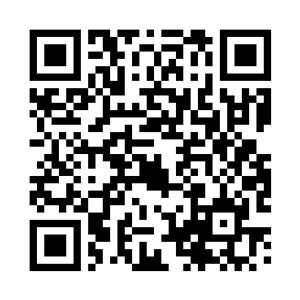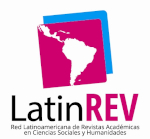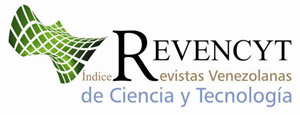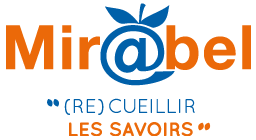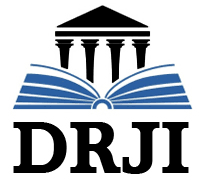Reimagining management
The impact of mothers on new management practices
Keywords:
management, mothers, management practices, leadership, innovationAbstract
The article Reimagining Management: The Impact of Mothers on New Management Practices focuses on exploring how the experiences of working mothers influence contemporary management practices. This study seeks to challenge traditional management norms by integrating the unique experiences of women who balance work and family responsibilities, highlighting the importance of their perspective in the work environment. The evaluation was carried out theoretically with input from different authors and methodologically, using ethnographic approaches to gather information about the experiences of women and mothers at work. Phenomenological and hermeneutic methods were applied to delve deeper into their experiences, allowing for a richer understanding of their realities. The comprehensive literature review supported the findings, providing a solid theoretical framework that contextualizes the research within the management field. The analysis reveals that management practices must evolve to recognize the human being as an integral entity with professional and personal needs. This involves adopting approaches integrating ontological coaching and promoting inclusive leadership that values creativity and adaptability. Chaos theory is presented as a key tool to manage uncertainty and foster innovation in organizations seeking to become more resilient. In addition, the need for flexible organizational structures that facilitate the exchange of knowledge and experiences among employees is underlined. It invites us to rethink current work dynamics, emphasizing the relevance of the role of mothers in the reimagining of management, to create more equitable and sustainable work environments.
Downloads
References
Aguilar, M. (2004). Conversar para aprender. Gadamer y la educación. Revista electrónica Sinética (23), pp. 11 – 18. https://www.redalyc.org/pdf/998/99815908003.pdf
Alvarado, E.; Morales, D. & Ortíz, J. (2021). Emprendimiento de nanoempresas en el empoderamiento de mujeres neolonesas. Revista Mexicana de Sociología 83(4), pp.863-895. http://www.scielo.org.mx/scielo.php?script=sci_arttext&pid=S0188-25032021000400863&lng=es&nrm=iso
Apaza, C. (2011). Estudio comparativo sobre procesos de reforma de estructuras públicas en países seleccionados. Apoyo al proyecto de innovación estructural del poder ejecutivo. Organización de los Estados Americanos. República de Paraguay, 76. Disponible en: www.oas.org/es/sap/docs/dgpe/EstudioComparativo2011.pdf
Barbera, N. & Inciarte, A. (2012). Fenomenología y hermenéutica: dos perspectivas para estudiar las ciencias sociales y humanas. Multiciencias, 12(2), 199-205. https://www.redalyc.org/pdf/904/90424216010.pdf
Bass, B. M., & Avolio, B. J. (1995). Transformational Leadership: Industrial, Military, and Educational Impact. Mahwah, NJ: Lawrence Erlbaum Associates.
Beauvoir, S. (1977). El segundo sexo (Vol. 1). Ediciones Siglo XXI.
Beauvoir, S. (2005). El segundo sexo. México: Editorial catedra.
Beduschi, L. (2007). Análisis del estado del arte sobre gestión de servicios técnicos en las organizaciones de productores. https://www.academia.edu/96119513/An%C3%A1lisis del_Estado_del_Arte_sobre_Gesti%C3%B3n_de_Servicios_T%C3%A9cnicos_en_las_Organizaciones_de_Productores
Berger, P. (1967). La construcción social de la realidad. (Buenos Aires, Amorrortu).
Bowlby, J. (1991). La teoría del apego de John Bowlby. https://lamenteesmaravillosa.com/la-teoria-del-apego-de-john-bowlby/
Cirillo, F. (2017). The Pomodoro Technique: The Acclaimed Time-Management System That Has Transformed How We Work. Crown Publishing. Disponible en: https://books.google.co.ve/books?id=rinKDQAAQBAJ&printsec=frontcover&source=gbs_ge_summary_r&cad=0#v=onepage&q&f=false
Bruni, A.; Gherardi, S. & Poggio, B. (2004). Entrepreneur‐mentality, gender and the study of women entrepreneurs. https://www.emerald.com/insight/content/doi/10.1108/09534810410538315/full/html
Comisión Económica para América Latina y el Caribe (CEPAL). (2020). Estudio Económico de América Latina y el Caribe 2020: principales condicionantes de las políticas fiscal y monetaria en la era pospandemia de COVID-19. https://www.cepal.org/es/publicaciones/46070-estudio-economico-america-latina-caribe-2020-principales-condicionantes
Corona, M. (2016). Consideraciones Teóricas Sobre El Concepto De Liderazgo Y Su Aplicación En La Investigación Educativa. Revista Educación, 40(1), 53-66. https://www.scielo.sa.cr/pdf/edu/v40n1/2215-2644-edu-40-01-00053.pdf
Correa, J.; Rodríguez A. & Pantoja J. (2020) Liderazgo ético en las organizaciones: una revisión de la literatura. https://dialnet.unirioja.es/servlet/articulo?codigo=7024495
Darby, J. (2023). ¿Qué es el liderazgo ético? Atributos, características y ejemplos. Thomas https://www.thomas.co/es-LA/resources/type/hr-blog/que-es-el-liderazgo-etico-atributos-caracteristicas-y-ejemplos
Eagly, A. & Carli, L. (2003). The female leadership advantage: An evaluation of the evidence. The Leadership Quarterly, 14(6), 807-834. 10.1016/j.leaqua.2003.09.004 https://www.sciencedirect.com/science/article/abs/pii/S1048984303000584
Eagly, A. & Carli, L. (2007). Through the labyrinth: the truth about how women become leaders. Harvard Business Review Press. https://hbr.org/2007/09/women-and-the-labyrinth-of-leadership
Everingham, Ch. (1997). Maternidad: Autonomía y Dependencia: Un Estudio Desde la Psicología. https://books.google.co.ve/books?id=twmBAUNguewC&printsec=frontcover&source=gbs_ge_summary_r&cad=0#v=onepage&q&f=false
Fernández, M. (2017). El Primer Sexo: Las Capacidades Innatas De Las Mujeres Y Cómo Están Cambiando El Mundo de Helen Fisher. Revista de Estudios de Género La ventana, (12), 298-305. https://www.redalyc.org/pdf/884/88411136013.pdf
Garayo, C. (2023). Neuropsicología de la maternidad: ¿cómo cambia el cerebro de una madre? https://www.doctorcarloschiclana.com/post/neuropsicolog%C3%ADa-de-la-maternidad-c%C3%B3mo-cambia-el-cerebro-de-una-madre
García, F. & Ramírez, M. (2017). Aprendizaje, Innovación y Competitividad: La Sociedad del Aprendizaje. RED. Revista de Educación, 52(1). https://www.researchgate.net/publication/314282031_Garcia-Penalvo_F_J_Ramirez-Montoya_M_S_2017_Aprendizaje_Innovacion_y_Competitividad_La_Sociedad_del_Aprendizaje_RED_Revista_de_Educacion
García, F. (2023). Gestión del Tiempo y Productividad Personal: Consejos Técnicas para el Éxito Profesional. Estratagema de Negocios Consultores. https://es.linkedin.com/pulse/gesti%C3%B3n-del-tiempo-y-productividad
Gil’Adi, D. (2022). Entrevista en YouTube en el canal "Diálogo sobre Aprendizaje Corporativo". https://www.youtube.com/watch?v=LrQI7Wk9oAI
Geena Davis Institute on Gender in Media & Plan International. (2022). Informe sobre liderazgo femenino: Voces de 10,000 niñas y mujeres jóvenes en 19 países.https://plan-international.org/uploads/2022/01/takingthelead-summaryreport-es.pdf
Gilligan, C. (1977). In a Different Voice: Psychological Theory and Women’s Development. Harvard University Press.
Chodorow, N. (1980). The reproduction of mothering: Psychoanalysis and the sociology of gender. University of California Press.
Global Entrepreneurship Monitor 2023/2024. ¿Qué tanto emprenden las mujeres en Latinoamérica? Este estudio tiene la respuesta. https://www.entrepreneur.com/es/mujeres-emprendedoras/que-tanto-emprenden-las-mujeres-en-latinoamerica-este/475857#:~:text=La%20presencia%20de%20las%20mujeres%20en%20el%20%C3%A1mbito,Ecuador%2C%20con%20tasas%20de%2030.2%25%20y%2028.8%25%2C%20respectivamente
Goldin, C. & Katz, L. (2000). The power of the pill: Oral contraceptives and women's career and marriage decisions. Journal of Political Economy, 110(4), 730-770. https://www.nber.org/system/files/working_papers/w7527/w7527.pdf
Grant, J. (1988). Women as Managers: What They Can Offer to Organizations. https://www.sciencedirect.com/sdfe/pdf/download/eid/1-s2.0-0090261688900368/first-page-pdf
Gumusluoglu, L. & Ilsev, A. (2009). Transformational leadership, creativity, and organizational innovation. https://www.sciencedirect.com/science/article/abs/pii/S0148296308000325
Hernández A, y Padrón J. (1997). Referencias Básicas en la Producción de una Tesis Doctoral. San Juan de los Morros: Colegio de Economistas. https://padron.entretemas.com.ve/cursos/deteorias/LECTURAS/texto_academico.htm
Huffington, A. (2014). Thrive: The third metric to redefining success and creating a life of well-being, wisdom, and wonder. Harmony Books.
Llanes-Font, M.; Lorenzo-Llanes, E. (2021). La Cuarta Revolución Industrial Y Una Nueva Aliada: Calidad 4.0. https://www.redalyc.org/journal/1815/181566671006/181566671006.pdf
Maturana, H. (1999). De l'origine des espèces par voie de la dérive naturelle. La diversification des lignées à travers la conservation et le changement des phénotypes ontogéniques. Paperback.
Mintzberg, H. (2010). Managing. Bogotá. Editorial Norma. Colombia.
Montaño, S. (2004). El sueño de las mujeres: democracia en la familia. https://repositorio.cepal.org/entities/publication/553228e8-b69b-40cc-9558-9119a802e00d
Nava, J. & Londoño, C. (2013). La dinámica emprendedora de las mujeres profesionales en Colombia; en Macías, G. y Parada, E. (Coords.) Mujeres, su participación económica en la sociedad, pp. 26-44. Editorial Universitaria, Universidad de Guadalajara.
Oppenheimer, A. (2023). ¡Cómo salir del pozo! Las nuevas estrategias de los países, las empresas y las personas en busca de la felicidad. Editorial Debate
Orozco, G. y Gonzales, R. (2010). Citado por Inzunza, B. (2012). Una coartada metodológica. Abordajes cualitativos en la investigación en comunicación, medios y audiencias. Global Media Journal México, 9(18), 73 – 74. https://gmjmexico.uanl.mx/index.php/GMJ_EI/article/view/38/38
Pérez, P. (2004). El Concepto de Trauma y de Respuesta al Trauma en Psicoterapia. Norte de Salud Mental, 5(20), 29-36. https://dialnet.unirioja.es/servlet/articulo?codigo=4830193
Picón Angela (2021). ¿Gestión tradicional vs. Gestión por competencias? https://www.linkedin.com/pulse/gesti%C3%B3n-tradicional-vs-por-competencias-%C3%A1ngela-peri%C3%A1%C3%B1ez-pic%C3%B3n-/
Rojas, M.; Tapia, J. & Herrera B. (2021). Emprendimiento y empoderamiento de la mujer rural de la parroquia de Santa Ana del cantón Cuenca; una mirada desde Trabajo Social. https://dialnet.unirioja.es/servlet/articulo?codigo=8229677
Rodríguez, S. (1828). Sociedades Americanas. https://docs.enriquedussel.com/txt/Textos_200_Obras/Pensadores_emancipacion/Sociedades_americanas-Simon_Rodriguez.pdf
Rodríguez, S. (2010). Luces y Virtudes Sociales. Universidad Simón Rodríguez. Ediciones Rectorado. https://norberto2016.wordpress.com/wp-content/uploads/2017/06/lucesvirtudes-simc3b3n-rodrc3adguez.pdf
Solé, Isabel, & Parella, Susana.(2004)) Nuevas expresiones de la maternidad. Las madres con carreras profesionales exitosas. https://dialnet.unirioja.es/servlet/articulo?codigo=1220321
Tubert, S. (1999). Psicoanálisis, feminismo, posmodernismo. En: Burin, M. & Dio Bleichmar, E. (Ed.), Género, Psicoanálisis, Subjetividad (pp. 289-313). Barcelona: Paidós. https://dokumen.pub/genero-psicoanalisis-subjetividad.html
United Nations General Assembly. (2015). ¿Qué son los Objetivos de Desarrollo Sostenible? PNUD. https://www.undp.org/es/sustainable-development-goals
Vinkenburg, C.; et al. (2011). An exploration of stereotypical beliefs about leadership styles: Is transformational leadership a route to women's promotion? ScienceDiret. The Leadership Quarterly, 22(1). 10 – 21. https://www.sciencedirect.com/science/article/abs/pii/S1048984310001839
Zarco-Arista, A. y Galicia, L. (2002). El concepto de escala y la teoría de las jerarquías en ecología. Universidad Nacional Autónoma de México. Ciencias, (067). 34-40. https://www.researchgate.net/publication/237038385_El_concepto_de_escala_y_la_teoria_de_las_jerarquias_en_ecologia
Published
How to Cite
Issue
Section
License
Copyright (c) 2025 Vanessa Carolina Piñero Riera

This work is licensed under a Creative Commons Attribution-NonCommercial-ShareAlike 4.0 International License.





